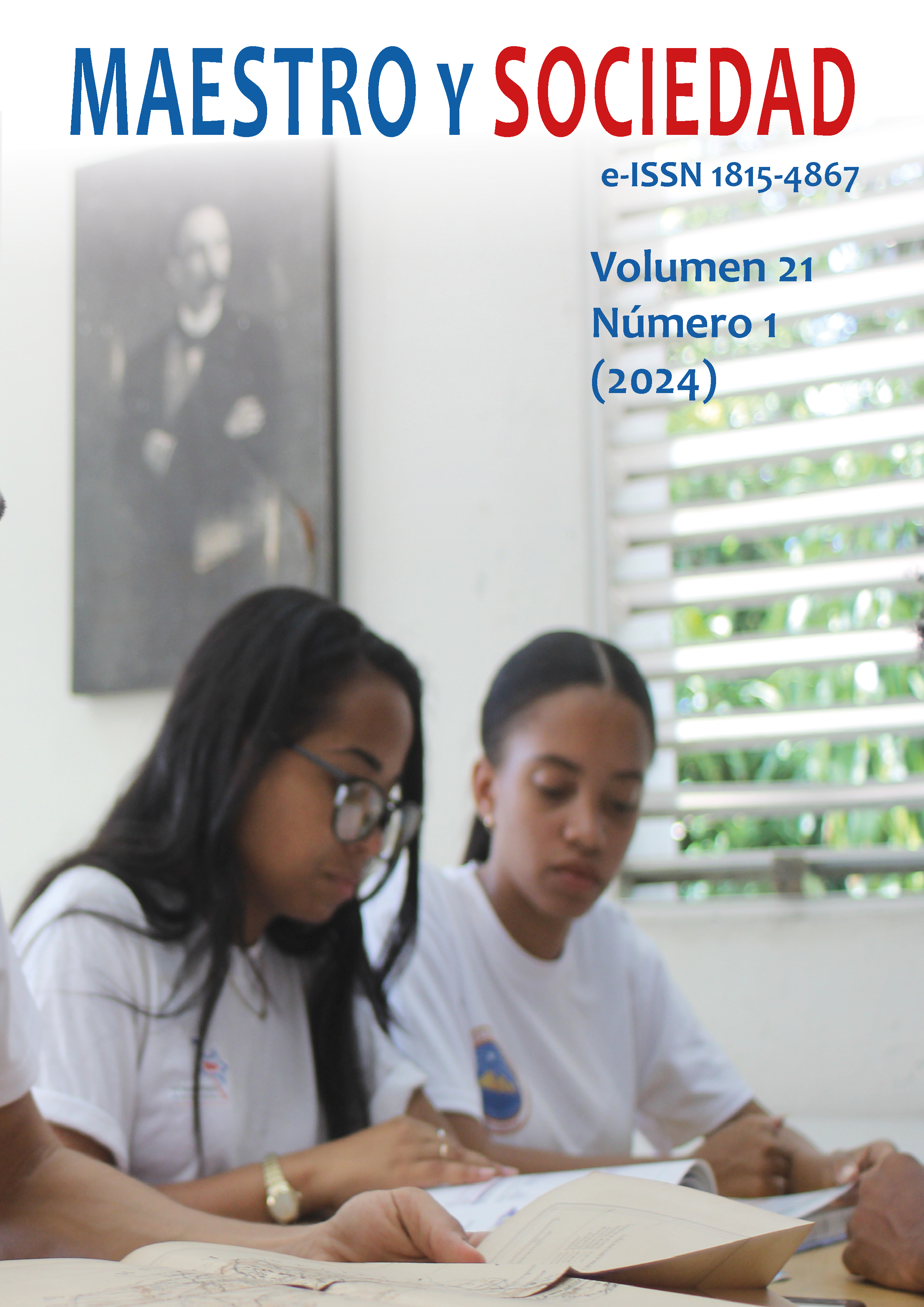The right to education during the institutionalized execution of the custodial sentence
Keywords:
Education, prisoners, social reintegration, prison systemAbstract
Introduction: It is an international consensus that education constitutes a right of all people and that even in conditions of imprisonment this should not be limited. Cuba, as an active part of this international assignment, has designed a set of programs, tasks and strategies to guarantee the materialization of the right to education of prisoners, overcoming the complex realities that arise to educate in conditions of confinement and achieve appropriate behavior for live in freedom, a task that clearly appears to be highly complex due to the conditions of confinement in which it is carried out. This article aims to: Dimension the importance of the education of prisoners as an expression of the principle of equality, in compliance with the constitutional mandate and as a way to achieve better results in social reintegration. Materials and methods: It was important for the development of the research to carry out an exhaustive updated bibliographic review, selecting as fields the Theory of Education and the right to education in penitentiary establishments, using the different search systems existing in Cuba. Articles, monographic studies, books, both in physical and digital existence, specialized magazines and internet sites, both dedicated to pedagogical and law studies, were reviewed. Results: The fight for the humanization of penalties, regardless of their nature, constitutes today one of the greatest challenges for criminal law, not only for those that the regulations identify as subjects of certain legal relationships, but for the entire community. , for society as a whole. The debates on this topic essentially focus on issues closely linked to the protection of human rights and compliance with the constitutional mandate in this regard, which in the case of Cuba starting in 2019 is especially dimensioned with the promulgation of the new Constitution of the Republic of Cuba. Discussion: Although the special regulations for penitentiary treatment and the activity carried out in their institutions have currently been updated, the same has not happened with the regulations that govern these cases in the Ministries of Education and Higher Education. those that are not yet in tune with the profound transformations carried out in criminal matters and that can sometimes limit the right to education of certain inmates, all of which speaks of effects on the principle of equality for the fulfillment of this important right in the resocialization. Conclusions: This work defends the importance of education in penitentiary centers in order to prepare these people to develop their skills for the outside world as a result of re-education that favors the possibilities of reintegration.
References
Asamblea Nacional del Poder Popular. (2022). Ley No. 152 de 2022 “Ley de Ejecución Penal”. Gaceta Oficial No. 94 de 1 de septiembre del 2022.
Asamblea Nacional del Poder Popular. (2023). Decreto Ley No.74 del 2023 Reglamento de la Ley de Ejecución Penitenciaria.
Cordero, S., Gadowski, G. y Ortiz, E. (2011). Educación en contextos de encierro. La experiencia de la EET N° 3 de Mar de Plata en la cárcel de Batán. VI Jornadas Nacionales sobre la Formación del Profesorado, 1-16.
Blazich, G., De Milén, S. y Viedma, A. (2007). La educación en establecimientos penitenciarios argentinos: estudio de algunas cárceles de las ciudades de resistencia y corrientes. Revista digital, 1, 1-25. Recuperado de https://bit.ly/2WdNNNa P.3.
Goffman, E. (2001). Internados: ensayos sobre la situación social de los enfermos mentales. Buenos Aires: Amorrortu.
Gil Cantero, F. (2010). La acción pedagógica en las prisiones: posibilidades y límites. Revista española de pedagogía, 68 (245), pp.49-66. https://dialnet.unirioja.es/servlet/articulo?codigo=3099332. P.49
Maeyer, M(2009). Mapa regional Latinoamericano sobre educación en prisiones: Notas para el análisis de la situación y la problemática regional. París: Centro Internacional d Etudes Pedagogigues.
Ministerio de Educación de la República de Cuba. (2013). Resolución 131 del 3 de Julio del 2013
Organización de las Naciones Unidas. (2016). Agenda 2030. Una oportunidad para América Latina y el Caribe. Naciones Unidas. CEPAL. Naciones Unidas.
Unesco. (2008). Educación en prisiones en Latinoamérica: derechos, libertad y ciudadanía
Published
How to Cite
Issue
Section
License
Copyright (c) 2024 Sandra Orozco Zapata

This work is licensed under a Creative Commons Attribution-NonCommercial-NoDerivatives 4.0 International License.
This journal provides immediate open access to its content, based on the principle that offering the public free access to research helps a greater global exchange of knowledge. Each author is responsible for the content of each of their articles.



























 Universidad de Oriente
Universidad de Oriente 